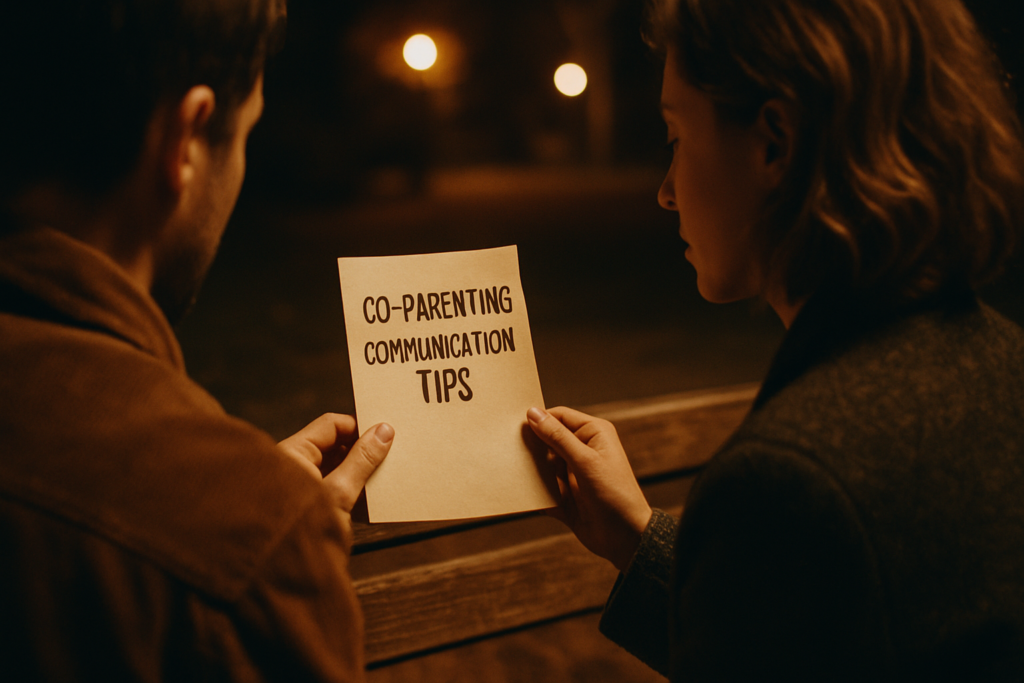Navigating co-parenting with a challenging ex-partner can be a daunting journey, but it’s crucial to prioritize the well-being of your children above all else. In my years of experience as a family counselor, I’ve witnessed firsthand the complexities and emotional toll that co-parenting with a difficult ex can bring.
However, with the right strategies and mindset, it’s possible to create a healthy co-parenting dynamic that centers around your children’s needs. In this article, I’ll share expert advice and practical tips on how to maintain a child-focused approach when co-parenting with a challenging ex.
From effective communication strategies to setting boundaries and managing conflicts, I’ll provide insights to help you navigate this often turbulent terrain with grace and resilience. By keeping the focus on your kids and fostering a positive co-parenting relationship, you can create a supportive environment that nurtures their well-being and emotional stability.
Understanding Co-Parenting with a Difficult Ex
Navigating the dynamics of co-parenting with a challenging ex-partner can be emotionally taxing; however, it is crucial to prioritize the well-being of your children in such situations. I understand the complexities involved in managing this delicate balance and offer valuable insights to help you maintain a child-centered approach.
Here are some key strategies to consider when dealing with a difficult ex-partner in a co-parenting scenario:
- Communicate effectively: Keeping communication concise, clear, and focused on the children’s needs is essential. Regular updates on the children’s well-being and important events can help reduce misunderstandings and conflicts.
- Set boundaries: Establishing firm boundaries with your ex-partner can create a sense of predictability and stability for everyone involved. Clearly defining roles, responsibilities, and expectations can minimize disagreements and create a more structured co-parenting environment.
- Manage conflicts constructively: Conflicts may arise, but it’s important to approach them with a problem-solving mindset. Stay calm, listen actively, and seek mutually beneficial solutions to resolve disagreements peacefully.
By implementing these strategies, you can nurture a positive co-parenting relationship that focuses on your children’s emotional stability and overall happiness. Your commitment to putting your children first will help create a supportive co-parenting environment conducive to their growth and well-being.
Setting Boundaries for Effective Co-Parenting
When co-parenting with a difficult ex-partner, establishing clear boundaries is crucial for maintaining a healthy dynamic centered on the well-being of your children.
Establishing Communication Guidelines
In co-parenting, it’s vital to set communication guidelines to ensure that interactions remain focused on the children’s needs. One effective approach is to use a shared calendar or co-parenting app to coordinate schedules and share essential information.
By keeping communication concise, respectful, and child-centered, both parents can navigate co-parenting challenges more effectively.
Defining Parental Roles and Responsibilities
Defining clear parental roles and responsibilities helps create a structured co-parenting environment. Each parent should have a clear understanding of their responsibilities regarding childcare, homework, extracurricular activities, and other aspects of their children’s lives.
By establishing and respecting these roles, co-parents can reduce conflicts and provide a sense of stability and consistency for their children.
Managing Conflict and Emotions
In navigating co-parenting with a difficult ex-partner, it’s crucial to address conflicts and manage emotions effectively. When tensions arise, it’s essential to stay focused on the well-being of your children and handle emotional challenges with maturity and composure.
- Addressing Conflict Head-On: When faced with disagreements or conflicts, I prioritize open and honest communication. By addressing issues directly and respectfully, I aim to find common ground and solutions that benefit our children.
- Embracing Emotional Resilience: I acknowledge that managing emotions is key to successful co-parenting. I strive to maintain emotional resilience by practicing self-care routines, seeking support from friends or a therapist, and focusing on positive coping strategies.
- Fostering a Calm Environment: Creating a peaceful co-parenting atmosphere is essential for minimizing conflict. I set the tone by modeling calm and collected behavior, especially during challenging interactions with my ex-partner.
- Seeking Mediation or Counseling: In cases where conflicts escalate, I am open to seeking professional help through mediation or counseling. These avenues provide a neutral space to address concerns, improve communication, and work towards mutually agreeable solutions.
- Prioritizing Children’s Well-Being: Above all, I remind myself that the ultimate goal is to prioritize my children’s well-being. By keeping this focus at the forefront, I can navigate conflicts and emotional challenges with a clear perspective on what truly matters.
Seeking Professional Help and Support
When facing challenges with co-parenting a difficult ex-partner, seeking professional help and support can be instrumental in navigating complex situations. As a family counselor with years of experience, I recommend considering professional assistance to ensure the well-being of your children remains the central focus of your co-parenting journey.
In difficult co-parenting scenarios, consulting a family therapist or counselor can provide valuable insights and strategies to manage conflicts effectively while prioritizing your children’s needs. Therapists can offer personalized guidance tailored to your unique circumstances, helping you establish constructive communication patterns and navigate challenges with a child-centric approach.
Moreover, engaging in co-parenting education programs or workshops led by professionals can equip you with essential skills and resources to enhance your co-parenting dynamic. These programs often focus on improving communication, setting boundaries, and fostering a cooperative co-parenting environment, promoting the overall well-being of your children amidst challenging circumstances.
Additionally, seeking support from support groups or online forums comprised of individuals facing similar co-parenting challenges can offer a sense of community and understanding. Connecting with others who share similar experiences can provide emotional support, practical advice, and a safe space to express concerns or seek guidance in co-parenting with a difficult ex-partner.
In cases where conflicts persist or intensify, considering mediation or legal assistance may be necessary to facilitate constructive dialogue and reach mutually beneficial agreements. Mediators can help mediate discussions, clarify misunderstandings, and assist in developing co-parenting plans that prioritize the children’s best interests, fostering a more harmonious co-parenting relationship.
By proactively seeking professional help and support, you demonstrate a commitment to maintaining a child-focused approach in even the most challenging co-parenting scenarios, ultimately creating a stable and nurturing environment for your children’s growth and well-being.




